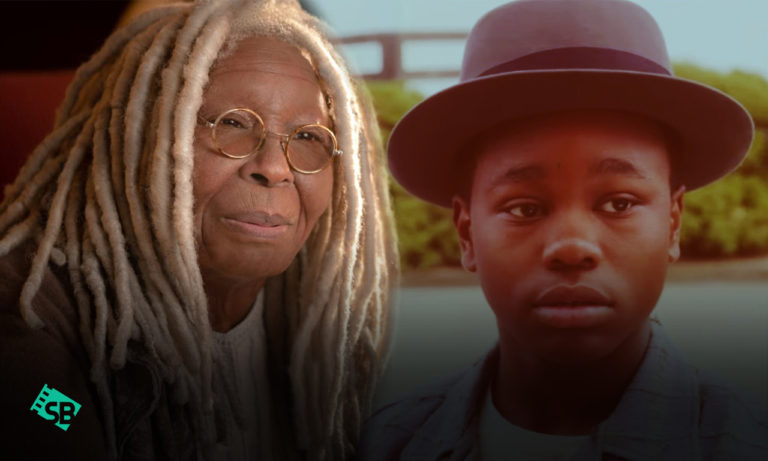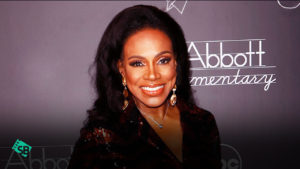Till, directed by Chinonye Chukwu, is a film about Emmett Till’s lynching and his mother Mamie Till-fight Mobley’s for justice. It had its international debut at the New York Film Festival on Saturday night.
Whoopi Goldberg, the film’s producer, and star addressed the audience afterward about the broader societal themes that the picture represents and encouraged them to draw parallels between what they see onscreen and what is occurring in the world today.
“Now you know what institutionalized racism looks like and you can connect it to your own life,” Goldberg told the crowd. “Maybe you’re a gay person. Maybe you’re a woman. Maybe you’re an Asian person. You all understand this hatred because it’s coming closer and closer. What we see on that screen is the culmination of what systematic racism looks like. It goes out in ripples and it touches everybody. And the whole point of all of this is we’ve seen it, we know. We saw George Floyd; we saw Trayvon Martin: children and young men, middle-aged men, men, people. This is your way of saying, I don’t like what I see up there and doing something about it.”
The current campaign for racial justice in the aftermath of the killings of George Floyd, Breonna Taylor, Ahmaud Arbery, and others, Goldberg told The Hollywood Reporter earlier on the red carpet, gave the long-gestating project the impetus it needed to get done.
“People thought we should do some stories about Black people, after all that went on over the last couple of years,” Goldberg said. “I always say, we got popular. We got back in vogue and people started saying maybe we should be doing more, we should be telling these stories and we got in through that and [MGM’s] Orion [division] said, ‘We should do this.’” Yes, thank you. Because we’ve been trying forever, just forever, to get it done. And people say, ‘No, it’s an important story and we really feel for it.’ And it’s like, ‘So you’re not going to give us any money for this?’”
Most recently, Sheryl Lee Ralph, the first black actress, has become the first to win an Emmy in 35 years. She added, “This is What Believing Looks Like.”
The audience at the New York Film Festival reacted positively to the film, giving star Danielle Deadwyler, whose portrayal of Mamie Till-Mobley is generating awards buzz, a standing ovation and enthusiastic applause and cheers. However, the film’s world premiere has been pushed back to the end of the fall festival season, which Goldberg suggested was due to persistent opposition.
“We were supposed to go to Venice and they then decided that it wasn’t the kind of film for their viewers,” Goldberg said. “And then it was, either Toronto or one of the film festivals in Canada, we were going to go there and that didn’t quite work for them either.”
Keith Beauchamp, the writer, and producer, investigated the tragic murder of 14-year-old Emmett Till in 1955 and saw connections to acts of violence today.
“There’s no other story that speaks to this generation of time than the story of Emmett Till,” Beauchamp told The Hollywood Reporter prior to the film’s premiere. “The political backdrop, the racial climate that we’re in. All of those things we saw back in 1955. We also had the tragic death of George Floyd, Ahmaud Arbery and Breonna Taylor and many others and that has awakened us again to understand the past in terms of where we have been and where we have yet to go.”
After the screening, Chukwu participated in a Q&A with Goldberg, Deadwyler, and departing NYFF executive director Eugene Hernandez, where she discussed the distinct approach and vision she brought to the film as director and co-writer of Till.
“The first non-negotiable I had in my approach to making this film, and this is what I shared with producers when they first approached me … is that the story had to be told from the perspective of Mamie, and we had to follow so closely her emotional journey, for without, we, the world, wouldn’t know who Emmett Till was,” Chukwu said. “She’s the heart, the foundation of the story. So that was the first thing. I also knew that I did not want to show any physical violence inflicted upon Black bodies.… [For a few reasons,] one being, narratively speaking, because we’re following Mamie’s journey, it’s not necessary to see that physical violence. We have to stay with Mamie. Also, as a Black person, I didn’t want to re-create it, I didn’t want to shoot it, and I didn’t want to watch it. And I wanted to take care of audiences that were watching it, particularly Black audiences. Also, I really wanted to begin and end the film with joy and love because, in addition to this film being about Mamie’s story and her journey, this is also a love story between Mamie and her child.”
The things that she did not reveal, Chukwu argued, are just as important.
“It’s important what’s not in the frame and what’s in the frame and part of cinema is suggesting the world beyond the frame,” she said. “Where the camera focuses is its own act of resistance, particularly in this film, so I was very intentional about who we see and when.”
She added of her approach, “I was able to use all of the tools of cinema to center the Black gaze, the Black POV, particularly that of a Black woman to visually, to use the tools of cinema to communicate the richness, the vibrancy of Black people, Black communities, Black spaces and put them in a position of power visually using cinematic language.”
Even though Chukwu is adamant about not depicting violence against Black bodies. Many Twitter users have expressed disinterest in seeing a film about the terrible occurrence. The film’s creators, however, insist that Emmett Till’s experience should be widely known.
I’m sure the Emmit Till movie is incredible but I personally won’t be watching it. I don’t want to keep seeing movies about EXTREME black trauma! There’s a lot of INCREDIBLE AND AMAZING things we’ve done. Please let’s make more of those movies.
— REASON TDE (@reasonTDE) October 1, 2022
“This is not the trauma porn film that some have said this would be,” Beauchamp told THR. “We were very careful in crafting the story [of Mamie Till-Mobley] to make sure that this story is told with dignity and respect. And so for those who are hesitant to see it, I understand in some cases why but it’s very important to understand that if we forget our past, history will repeat itself. And when Emmett Till’s mother made the decision to have an open casket funeral, so that the world could see her son, it was a pivotal moment that galvanized the American civil rights movement. When we talk about Till we have to remember that Emmett was the catalyst that sparked the American civil rights movement.”
Are you excited to watch “Till,” Movie the Culmination of What Systematic Racism Looks Like? Let us know!
The actor who plays Mamie’s future husband, Gene Mobley, thinks the film is significant watching.
“If we keep trying to turn our backs to the ugliness that there is in the world, we’re not going to fix it,” he said. “We have to confront what’s going on so that we can do something about it. I only ask that people find the strength, find the patience to really take the story in, so that we can do something about it.”
Thomas, John Douglas Thompson, Deadwyler, and Jalyn Hall, who plays Emmett Till, all told THR that they undertook significant study into their real-life counterparts, using both Beauchamp’s gathered materials and their own first-hand knowledge.
For her part, Deadwyler said she “did everything.”
“I did a lot of academic research, aesthetic research on archival footage and photos. I read a lot of theses. And the bible for me was really Mamie’s memoir. I had a lot of conversations with Chicagoans and Mississippians: these two sister [regions] that have had this great migrational connection,” Deadwyler said. “So I just dug and dug and dug into those things and synthesized them with a kind of poetic understanding of who Mamie was and Emmett was because so many people have such a rich connection to this experience. Everyone thinks and knows that this could be you. This could be my cousin. Everyone connects to this experience that you are living a beautiful life of some sort and then tragedy comes. And yet she resoundingly builds herself back from something so wretched to activate herself into a different kind of mother.”
Following its global debut on Saturday night, the festival, Orion, and United Artists Releasing will present a free student and community screening of Till in Alice Tully Hall in Manhattan’s Lincoln Center on Monday. The film will be shown at the same time in other cities around the United States, including Atlanta, Boston, Chicago, Philadelphia, and Louisville, Kentucky, and will be followed by a live Q&A with the film’s creators and cast.
On October 14th, Till will premiere in limited locations before going wide on October 28th.
"We're going to begin and end in a place of joy." Hear her story and witness Mamie Till-Mobley's fight for change. See #TillMovie in select theaters October 14, and everywhere on October 28. pic.twitter.com/7pHTU74ljK
— TILL (@TillMovie) October 1, 2022






